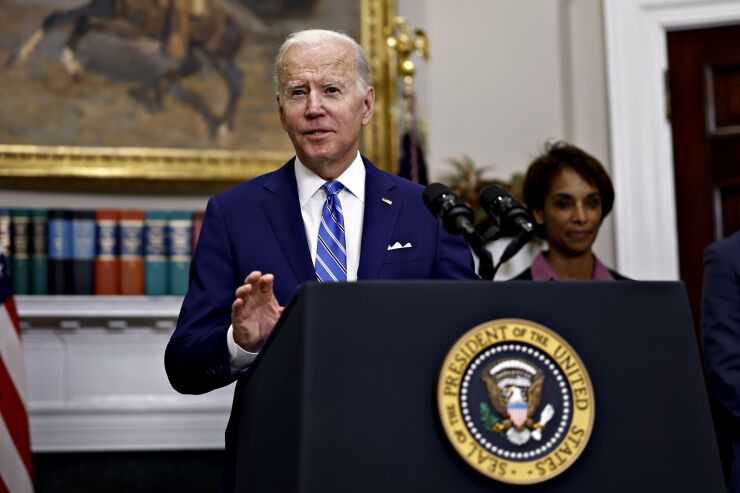The Biden administration's year-old rule allowing retirement plan managers to consider environmental, social and governance factors in their investment decisions has survived a challenge from 26 Republican-led states.
Judge Matthew Kacsmaryk of the U.S. District Court for the Northern District of Texas upheld the Department of Labor rule Thursday in a
"While the court is not unsympathetic to plaintiffs' concerns over ESG investing trends, it need not condone ESG investing generally or ultimately agree with the rule to reach this conclusion," wrote Kacsmaryk, a Trump appointee who has ruled against the Biden administration several times and who made headlines in April for a controversial decision that ordered a halt to federal approval of mifepristone, the so-called abortion pill.

The Department of Labor rule, which was finalized in November 2022 and took effect in January, allows fiduciaries to consider ESG factors as they invest in privately held retirement plans. The rule reversed 2020 Trump administration guidance on the 1974 Employee Retirement Income Security Act that required fund managers to focus on "financial over nonpecuniary benefits."
The ruling marks another salvo in the ongoing culture war over the role that ESG plays in investing. Most of the battles have
In his opinion, Kacsmaryk said that because Congress has not directly addressed whether ESG factors can be used to determine investment decisions, the court is only allowed to "disturb an agency rule" if it's considered "arbitrary or capricious in substance, or manifestly contrary to the statute."
That's not the case with the new rule, which "provides that where a fiduciary reasonably determines that an investment strategy will maximize risk-adjusted returns, a fiduciary may pursue the strategy, whether pro-ESG, anti-ESG, or entirely unrelated to ESG," the judge said.
The rule gives priority to financial considerations over ESG factors and has no "overarching regulatory bias in favor of ESG strategies."
The group of 26 states, led by Texas Attorney General Ken Paxton and Utah Attorney General Sean Reyes,
When the lawsuit was filed, the Department of Labor contested the standing of the states, and in a footnote in his ruling, the judge indicated that he agreed, suggesting that state standing based on a loss of specific tax revenue should involve "undisputed" direct injuries to the state.





